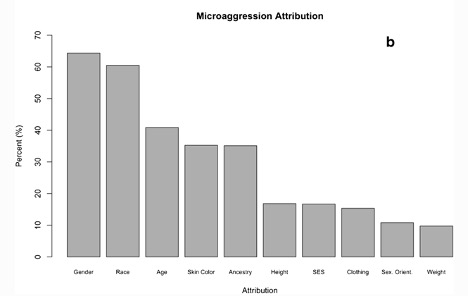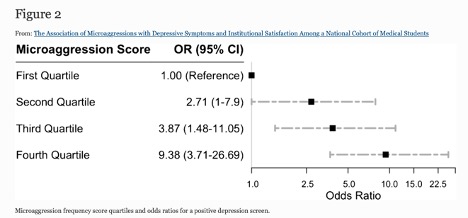Let’s begin our exploration of the impacts of microaggressions using primary literature. We will consider research conducted by Anderson and colleagues in health science students. This cross-sectional study assessed health science student experiences of microaggressions and how these experiences influenced student mental health. The study:
- Included health science learners throughout the United States.
- Measured depression (using the 2-item Patient Health Questionnaire or PHQ-2).
Question
What percentage of study participants reported experiencing at least one microaggression in health science school?
27%
Incorrect
Try again
48%
Incorrect
Try again
76%
Incorrect
Try again
99%
Correct!
34% reported experiencing a microaggression almost daily.
Question
Using the graph below, which themes were microaggressions most frequently attributed to? Please select the three most frequent.
The following figure illustrates the correlation between microaggression score and depression.
Question
What do the results presented in Figure 2 suggest?
Other research indicates experiencing microaggressions can:
-
Cause mental health effects.
-
Create physical health problems.
-
Deplete trust in the healthcare system.
-
Strain relationships.
-
Cause energy to be diverted away from learning and/or productivity.
-
Internalize feelings of worthlessness and heightened feelings of vulnerability.


